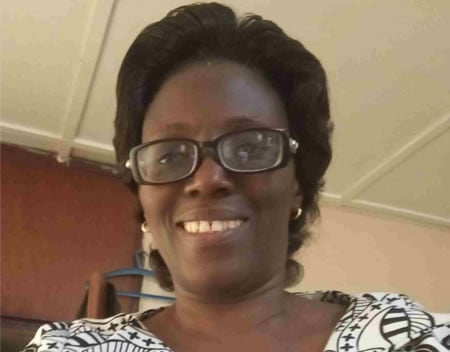
What informed your choice of career?
I always wanted to teach but by the time I was finishing secondary school, the teaching profession was not attractive, especially to my parents who were teachers themselves I decided to study Engineering. By the time I finished Engineering, I knew where I wanted to be so I did a post-graduate course in Education.
ALSO READ: Osun Tribunal: We reject Appeal Court clarifications — PDP
My father was an Educational Technologist and many of the things he used to do in the house interested me. They used to have festival of instructional materials in the past where different schools, colleges and universities would bring instructional materials that their students developed.
All those things were very interesting to me and along the way while in Engineering, I did some computer courses and I found them to be very exciting. So, the world of Educational Technology was somehow beckoning on me that I could use computer to do different kind of designs.
Also, my father studied in the United Kingdom and United States of America and by the time he was finishing his postgraduate in the US, he came back with a lot of materials, games and toys. Those were the things we were used to in the house. I loved joining everything together and playing with the games.
So, it was just natural that when I finished Engineering, I went for PGD and went into Educational Technology. By the time I finished my Ph.d, Computer started entering into the educational sector in Nigeria so I was so glad that Educational Technology was an area I wanted to be in. But for some years I taught Engineering at the College of Education and the Polytechnic. I joined UI in 1998.
What price did you pay to be where you are today?
Really, I think it is the price of diligence and continuous learning because by the time I was finishing my Ph.d, I was designing paper and cardboard game to teach mathematics at the foundation level but now, we are using computer games, animations, simulations and ICT-based tools and strategy.
Between that time and now, I had to keep on learning. I want to keep on evolving. I think the price I paid was to keep on learning.
I had to be diligent in finding things out to become relevant in the position I am now, because it is a long way between that time and now. I can say that even at this point, I am still abreast of technologies that can be used for teaching and learning. So, the price for me is that despite everything; family and children, I have helped to keep on learning. Some people just drop it and say that they are so busy, yes, there were times I was busy with my children’s upbringing and research but I needed to keep on so as to be a leader in that field and to be relevant.
How were you able to combine the home front with your career?
There is something called grace and that is what I have received. It is grace that will help a person especially in the situation we find ourselves in this country to be able to juggle everything together. I received grace from God but when you receive grace, you have to use it.
So, it is not just waiting for grace to come, we have to use it. So, part of using the grace is planning. You must be able to plan. You also know that there won’t be much time for partying and mingling with friends. You have to juggle your priorities. That is the basic thing. When you know where you are going, you have to make a plan and when you plan with the grace of God, you will be able to get to where you are going. It has been challenging; I must say. It has been tough too many times but keep focused, make your plan and grace will push you through.
What is the most defining moment of your career so far?
Every day is a defining moment because in my career, I keep learning new things and whenever I am able to exhibit my new learning, that is my high point. I keep learning and learning using technology. I love using technology to teach, I love designing learning and I love communicating to people how to use technology.
When I am able to do this, it is a continuous high like when people say they get high on something. I get high when I am able to communicate to people how to teach and how to learn using technology and I see that they get it and are doing it.
What do you do at the Center for Entrepreneurship and Innovation?
Now, the essence of research in higher institution is to benefit the society and how do we translate our research into something that will benefit the society? The other way is that the societies look at the higher institution as solution providers to their problem.
So, how do we get to know what their problems are so that we can research into what the solution will be? That interface is where the Center for Entrepreneurship and Innovation stands; to be able to link the town with the gown. We transform society through entrepreneurship and innovation.
Now, the product of tertiary institution is our graduates. How do we ensure that our graduates get out there and fit into the society in terms of knowledge, skills and attitude?
And in this day and age, how do we ensure they fit into the 21st century job market? So, those are the things our center is concerned about. We want to ensure that our students are employable. They meet the standards of the current job market and as the job market changes, they meet that standard.
We also want a situation where when something happens in the industry, society or community and people are looking for solution and they come to the university, whether it is knowledge, product or innovation, we will be able to provide it based on our research. That was why the center was established. In addition, recession brought about a lot of shift of focus from paid employment to creator of employment. And the center is there to build up our student to enhance their capacity in entrepreneurship. We have been able to achieve all the things I said in small measures and we are hoping that very soon, we will have the first University of Ibadan spin off from our research. I can’t give you the details of that now.
Last week was the Day of the Girl- Child. How far do you think Nigeria has come in addressing the issue of the Girl-Child?
From the various statistics that we have listened to, we are better than where we were before but that as it may, we have not yet hit the level that we need to get to because if we compare the various geopolitical zone of the country, we will still see some measures of imbalance but I can say that we have moved from when girls were not encouraged to go into the sciences, technology and engineering because they have to be mothers.
We’ve also moved from the level that okay even with your engineering degree it might be best for you to teach. Women are doing a lot of things now, trying to combine the home front with workplace. I think we have actually moved.
What advice do you have for parents?
Every girl is unique. Even as we want to promote girls into sciences, engineering and mathematics, it is not every girl that will do that. So, we should, right from their young age, help them to identify their own talents, capabilities and help to direct it into the vocations that would be suitable for those talents.
Another way to look at it is that right from their foundation age, we should introduce to them the kind of life they want to live in the future. They should seriously think about it, I am not saying children should not play but it should be part of their play.
I want to be this or that. Also, they should be able to think about the problem they want to solve in the world, not only in Nigeria. And when we condition our children to begin to think that way, they will be able to see what their talents are and where they can apply them. I will advise parents to help the girl child and even the boys to be focused; to be able to identify the gifts and talents that they have and direct it in the right direction.
There are many out of school programmes that they can attend. Also, introduce them to several role models all through their growing up years so that they can have various exposure and training so that by the time they get to secondary school, they know where they are going and a person who knows where he is going will put everything into it to get to where he is going.
As a mother and grandmother, how do you think we can raise godly children in this generation?
The parents themselves must be godly; you cannot give what you don’t have. A woman who does not pray or read the Bible should not expect her children to be godly. It may happen but you have to be deliberate about parenting. You have to be intentional about parenting.
God has given these children into your hands, right from the onset, you need to ask God: Where are these children going to? You need wisdom that come from God alone to be able to train them. Bible says: Train up a child the way he should go.
When he grows he won’t depart from it. Even if he plays around and becomes a rascal along the way, eventually those things you have taught him will direct him to the right path. Parents must be there to intentionally train their children.
When children are back from school in the evening; be part of what they are doing and at weekends, impart various things in them and expose them to different people, programmes and churches that they can learn from. One other thing that is vital is that you must ask God to give you a vision for everyone of your children. If God shows you what that vision is; begin to pray to pursue it.
In summary, it is about having a vision from God concerning your child and being intentional in training that child towards that vision. Along the way, there might be some disappointments; some children may go haywire but a godly mother will continue to pray, expecting that the seed that had been sown will direct the child back to the right path.





